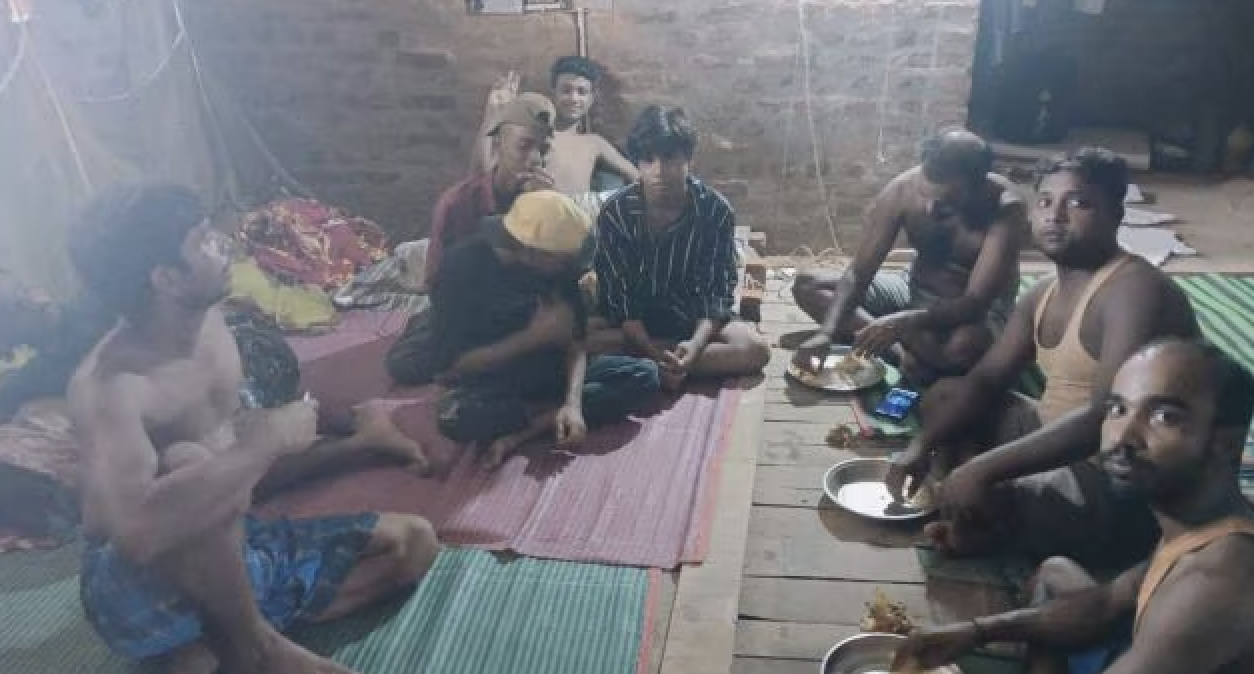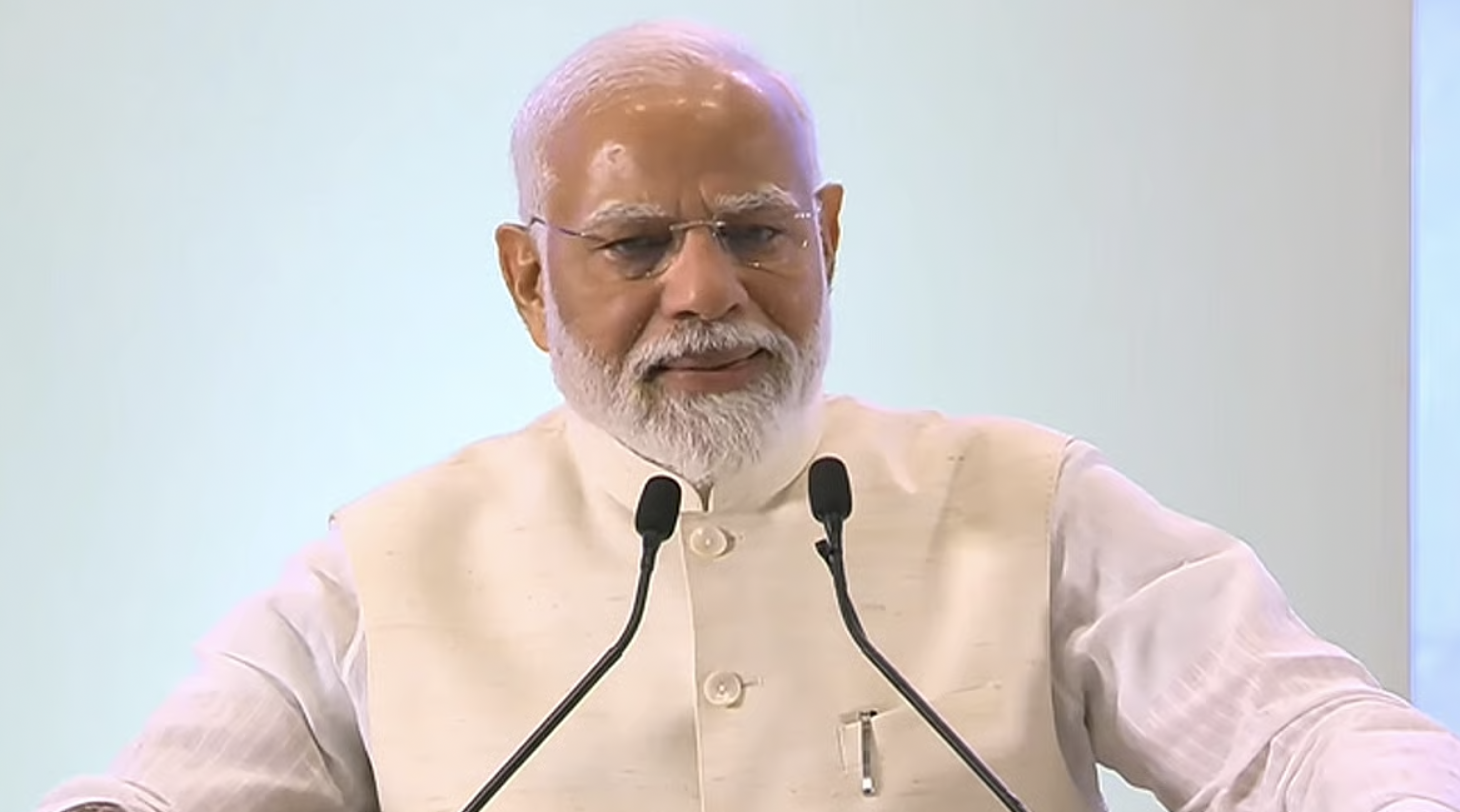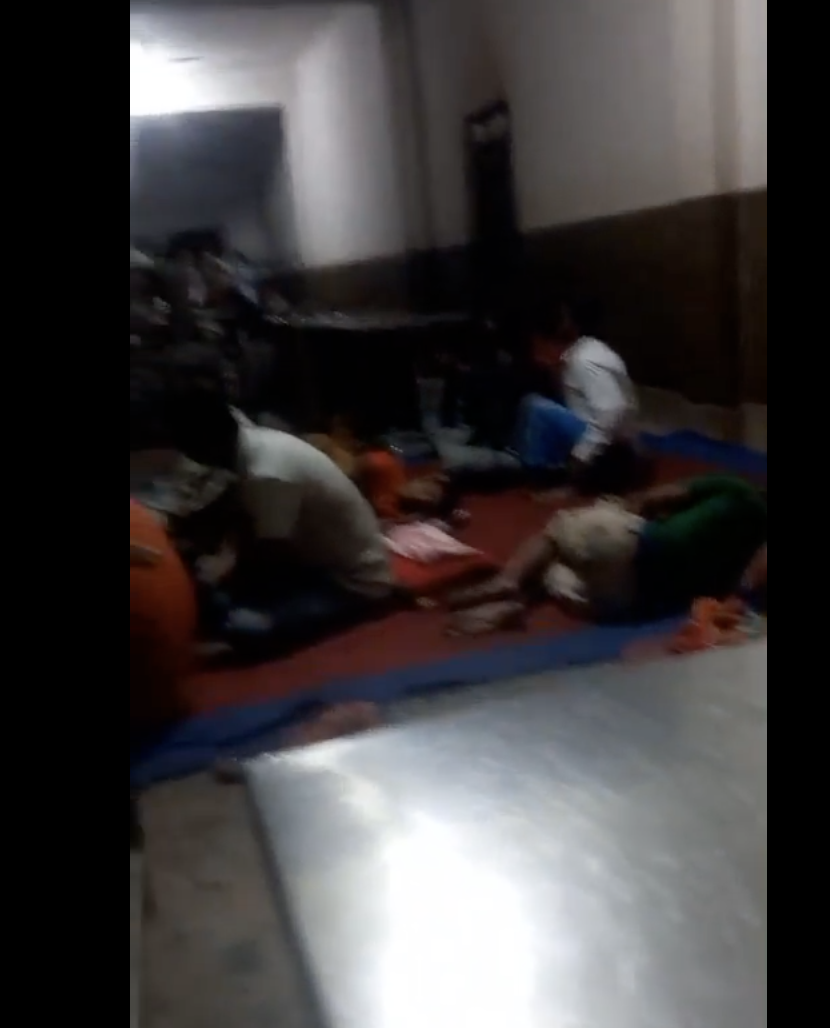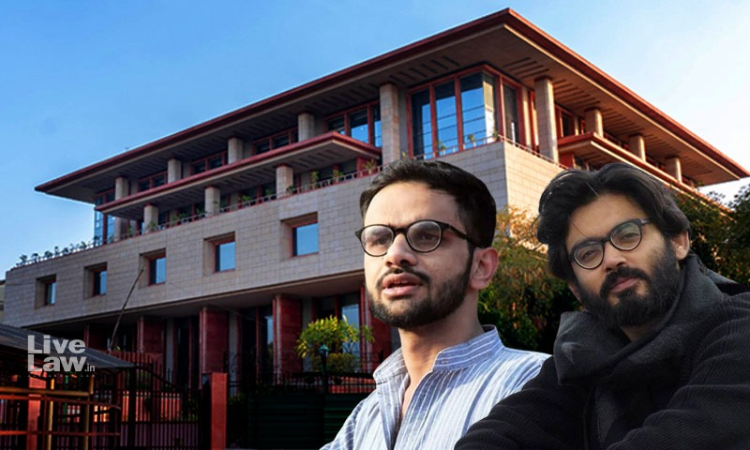Mumbai: A meticulously planned online and offline campaign by Hindu vigilante groups across at least two states, combined with Maharashtra and Gujarat police inaction against threats of violence against audiences and venue owners, led to the cancellation of six shows of Muslim stand-up comic Munawar Faruqui in October 2021.
After successes in Gujarat, Members of the Bajrang Dal and the Vishwa Hindu Parishad (VHP), affiliates of India’s ruling Bharatiya Janata Party (BJP), launched the campaign against Faruqui, 30, in Mumbai on 21 October, a week before his show, issued thinly veiled threats of law-and-order disruption to the police and warned organisers, who wilted under the pressure.
Encouraged by the cancellations, these groups told Article 14 that they now aimed to have Faruqui’s shows in Mumbai on 8 and 12 November cancelled. They would also pressurise ticketing website BookMyShow to stop selling tickets to his shows, they said.
These campaigns had a range of demands: cancellation of shows through social-media drives; to re-arrest him—he spent 37 days in jail with bail denied by three judges (“defying legal logic”, as lawyer Abhinav Sekhri wrote) earlier this year in Indore, Madhya Pradesh—and have his performances “banned” for allegedly hurting Hindu sentiments.
One letter by the VHP in Mumbai to the police alleged that his show, titled “Dongri to Nowhere” was “based on the autobiography of India’s traitor Dawood Ibrahim”, as a reason why the show should be stopped. Ibrahim has written no autobiography, Faruqi’s shows do not mention him, and it is no crime if they did.

Organisers announced on 26 October the cancellation of three Faruqui shows in the western Mumbai suburb of Bandra between 29-31 October. Earlier that month, three of Faruqui’s shows scheduled for Surat, Ahmedabad and Baroda in Gujarat were cancelled when activists from the Bajrang Dal threatened organisers with “aarthik, maansik aur shaaririk” (economic, mental and physical) suffering if they went ahead.
The cancellations come 11 months after a mob of Hindu right-wing activists disrupted his performance in an Indore club on 7 January, alleging Faruqui had “poked fun” at Hindu gods and goddesses. Nothing of the sort happened.
Faruqui’s Hindu Friends Also Targets
In January, Indore police chief Vijay Khatri acknowledged Faruqui made no anti-Hindu jokes. But he praised Hindu vigilantes for being “active & alert”, telling Article 14 that “it didn’t really matter” that Faruqui and four friends and associates had not joked about Hinduism.
The police based their case on jokes the vigilantes claim they overheard during a rehearsal. The Indore police in January, instead of acting against the vigilantes who disrupted the show, reached the venue and arrested Faruqui and four others, local comic Nalin Yadav, budding comic Prakhar Vyas, his minor brother and their friend Edwin Anthony.
While Hindu fundamentalists reduce Faruqui’s opportunities, Vyas has now given up comedy, and Yadav struggles to find bookings. Many venues refuse to let Yadav perform and on 12 August he was harassed in Indore by Hindu vigilantes who forced him to chant Jai Shri Ram.
The five men and Faruqui’s friend, Sadakat Khan, arrested a day after the January show in Indore, were charged under sections 295-A, 298, 269, 188 and 34 of the Indian Penal Code, 1870, for “deliberately intending to outrage religious feelings,” for “uttering words etc with deliberate intent to wound religious feelings,” “negligent act likely to spread infection of disease dangerous to life” (in view of the pandemic), for “disobedience to order” and for “acts done by several persons in furtherance of common intention.”
If convicted, they could face up to four years in prison. Yadav said the trial had not yet started.
Faruqui was released 37 days after the arrest, when the Supreme Court granted him bail. The others were released in weeks that followed.
The history of police and judicial action against him and cancellations of the shows on 28, 29 and 30 October and recent police inaction against those issuing the threats indicate, arrest is an ever-present danger.
‘The Bajrang Dal Is Not Tolerant’
After Faruqui announced shows in Gujarat on 12 September through a social media post, tickets sold till late September, until the first signs of opposition emerged after local Bajrang Dal members objected to the show.
Jwalit Mehta, the president of Bajrang Dal in north Gujarat, in a video he posted on Twitter, said, with no basis, that Faruqui made “vulgar remarks about the Hindu religion,” and insisted the VHP would not allow his shows.

Jwalit Mehta, the president of Bajrang Dal in north Gujarat.
“Hindus have been tolerant for a long time, and have silently tolerated this,” Mehta, 35, says in the video. “But the Bajrang Dal is not tolerant. Bajrang Dal knows tit-for-tat.”
Mehta’s threats worked, and organisers called off the three shows in Gujarat.
The owner of a security agency and a share trader in Ahmedabad, Mehta told Article 14 that they were angry because Faruqui “constantly” mocked Hindu “religious sentiments”, although he never has.
“If you see any of his shows, he is always making fun of Hindu gods and goddesses,” said Mehta. “Why does he never make fun of (prophet) Muhammad or Aisha (the prophet’s wife)?”
Mehta said his “success” in Gujarat had spurred Bajrang Dal colleagues nationwide. “Now, they are all saying that if Faruqui goes there, they won’t allow a single show of his to be held.”
How The Stop-Faruqui Campaign Unfolded
Mehta explained the mechanics of the Dal’s stop-Faruqui campaign and how they created “awareness” about the comedian.
“My video (mentioned earlier) went viral,” said Mehta. “Then, we sent it to WhatsApp groups and had meetings with our workers, where we told them why we needed to get Faruqui’s shows cancelled.”
These efforts were effective, said those close to Faruqui. Hindu vigilantes frequently referred to a 2020 video of Faruqui, where he jokes about a popular Hindi song, Mera Piya Ghar Aaya, Oh Ram Ji. In the now-deleted video, Faruqui mocks the song and the irony behind the words, pointing to Ram’s own 14-year-long exile.
“In the days leading up to the Mumbai show, WhatsApp groups were flooded with angry memes and videos against Faruqui, asking people to boycott his shows and demand his arrest,” said a source close to the stand-up comic.
Mehta acknowledged that this social-media campaign was coordinated by his organisation.
“Social media volunteers from Bajrang Dal Gujarat were in constant touch with their counterparts from Maharashtra, about how to express their opposition to Faruqui’s show,” he said.
It worked.
On 21 October, the hashtag #GoBackMunawar started trending on Twitter.
Many of those tweeting it had connections with the BJP.
For instance, Arun Yadav, the state in-charge of the Haryana BJP’s information technology (IT) department, tweeted that he “supports” the hashtag. Similarly, Rishi Rajput, who in his Twitter profile calls himself a BJP worker and is followed by the office of union minister Piyush Goyal’s Twitter account, tweeted multiple times that day, asking for Faruqui to be “banned” and arrested.
As the social-media campaign unfolded, VHP workers fanned out and laid the groundwork for the shows to be cancelled.
VHP Pressure Police, Organisers
A VHP worker from Mumbai, speaking on condition of anonymity, told Article 14, that VHP members met police officials, organisers and venue managers and owners in Mumbai.
“We met police officials of those areas and showed them Faruqui’s clips about Lord Ram and Sita and asked them, isn’t it objectionable?” said the worker.
The worker said they also met the venue owners and told them that “Faruqui routinely insulted Hindu gods and goddesses”, the worker told Article 14.
These efforts paid off.
The Indian Express reported that the Mumbai police, while warning the Bajrang Dal of action, also served a notice to the show’s organisers. The notice, the Express reported, said the police “had information that the show might hurt religious sentiments of Hindus or other religions”.
“If a law and order problem takes place due to such content that hurts religious sentiments, then action will be taken against the organisers and the notice will be used as evidence against them in court,” the Express quoted the notice as saying.
Article 14 has reviewed a copy of this notice. Mumbai Police spokesperson, deputy commissioner of police Chaitanya S, said he had no comments to make.
Police inaction appeared to have spurred Hindu fundamentalists.
The VHP worker, quoted above, said that the group had already submitted letters to the Mumbai police and the venue managers of Faruqui’s next shows to be held in Mumbai post-Diwali and were determined to see them cancelled.
“After Diwali, we are even going to approach BookMyShow and will be asking them to stop selling tickets to Faruqui’s show,” the worker said.
Growing Popularity, Shrinking Spaces
As he faced cancellations, Faruqui told Article 14 that he had seen his popularity grow since his arrest and had performed at 50 shows since his release from jail in February 2021.
That is not the case with 25-year-old Nalin Yadav, the stand-up comic who was incarcerated with Faruqui on 1 January.
Released after 57 days, Yadav saw his primary source of livelihood—performing and organising stand-up and open-mic performances in Indore—drying up. Organisers and venue owners no longer wanted to do business with someone controversial.
“Many venue owners say an outright no, he said, “while others tell me that if I perform, kuch bhi ho sakta hai (anything can happen),” Yadav told Article 14 in April this year.
Not much has changed since for Yadav.
He went to New Delhi in September this year in the hope of being able to perform, but his shows were cancelled “mysteriously”, he said. “They never give me any reasons,” he said. “They just tell me at the last-minute that I won’t be performing.”
In August 2021, Yadav wrote on Instagram how in Indore a group of men forced him to chant “Jai Shri Ram” and “Bharat mata ki jai” and asked why he supported the “mullahs”.
The lack of work has made life hard for Yadav, who is also the guardian of his younger brother, Akash, 18. Their father died early in their lives, and the brothers lost their mother in October 2020 to breast cancer.
To support himself and his brother, Yadav even worked in March as a labourer at a plastic-bag making factory near their home in Pitampura, Madhya Pradesh.
“I keep telling myself, I will try as much as I can to make a career out of stand-up comedy,” said Yadav.
Reports in the media about his plight attracted some attention and concern but little that helped. “People who want to help me tell me to keep doing these open mic events in the hope of being spotted,” he said, referring to free events that budding comics often perform at. “But, I have done that for a few years now, and all I am now hoping for is some organiser who will let me actually perform in a show.”
Yadav said he alternated between hope and frustration these days. “I am ready to quit, if it doesn’t work out.” He did not know what he might do if it did not.
“But I know,” he said, “that I can’t go hungry.”
(Kunal Purohit is an independent journalist based in Mumbai.)
This article originally appeared in Article-14






